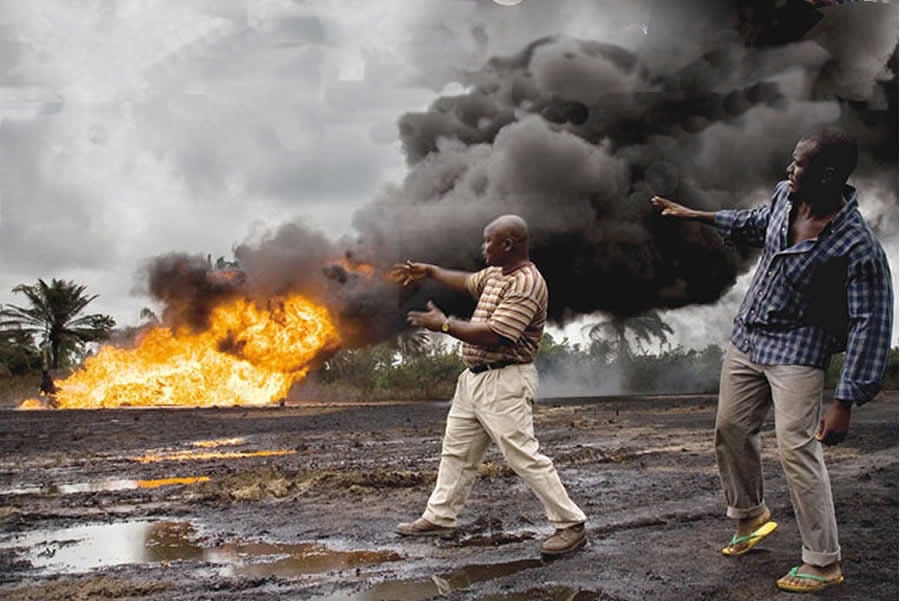By Usman Aliyu
As the world prepares for the 2022 United Nations Climate Change Conference (COP 207), scheduled for November 6 to November 18, in the green city of Sharm El-Sheikh, Egypt, experts expect Nigeria to take a lead role in attaining climate justice at the conference.
Climate justice seeks to ensure just division, fair sharing, and equitable distribution of the benefits and burdens of climate change, and responsibilities to deal with the phenomenon.
The experts’ expectation is premised on the fact that 10 years after the conference was held on the African soil for the first time in Morocco, Africa is getting another opportunity to host the world to discuss the climate.
Nigeria, undoubtedly the continental leader, is expected to take full advantage as the conference holds in Africa, to set the trend of discussions.
In spite of Nigeria being a signatory to many international treaties on climate change, its governments seem to have been eerily quiet on climate justice at the homestead.
The seemingly tardy Ogoniland environmental clean-up continues to cast doubt on Nigeria’s commitment to the United Nations Framework on Climate Change.
Ogoni is an ethnic minority in Rivers State, in the Niger Delta on whose land decades of oil exploration and exploitation have devastated the environment leading to loss of livelihoods and consequent monumental poverty.
Its roughly 800,000 inhabitants live below poverty line in spite of huge oil and gas revenues taken from the land by international oil companies representing the Nigerian government in oil and gas production activities there.
Several multinational companies set up oil operations in the Niger Delta area since 1956 when oil was first struck in commercial quantities at Oloibiri in present day Bayelsa State.
One of the consequences of oil exploration and exploitation in the Niger Delta is the destruction of traditional economic support system of fishing and farming.
The land, water, and air in Ogoni are polluted to the extent that inhabitants can hardly feed on other natural endowments of the area.
Oil spills, gas flaring and dumping of industrial waste into the Niger River make fishing as a means of food supply no longer feasible because very few fish can survive in the polluted river.
Worse still, the groundwater is also polluted and not potable. Rainwater can also mot be harvested as it is acidic as a result of decades of gas flaring.
The combined effects of these activities have led to soil degradation which has continued to affect crop yield and harvest in the area.
Soot – toxic hydrocarbon emissions emanating from surrounding creeks and waterways and hanging in the air for hours – becomes a common sight in the Niger Delta.
More than 5,000 Ogoni people have lost their lives in the struggle for climate justice, yet no remedy is in sight as gas flaring continues to exert significant environmental stress on the people.
In the face of these climate change impacts, the Nigerian government, which is expected to respond positively, is reluctant to enforce environmental regulations on the multinational companies or cushion the effect of environmental damage on the people.
Studies show that gas flaring in the Niger Delta region releases 45.8 billion kilowatt of heat into the atmosphere, which cost 518.33 million dollars. This gas could be sold or donated to the inhabitants for clean cooking, even though it is fossil fuel.
It is for this reason that Mr Godwin Uyi Ojo, Executive Director, Environmental Rights Action/Friends of the Earth Nigeria (ERA/FoEN) described Nigeria’s relation to just energy transition as precarious.
Interestingly, energy transition will be a focus at the COP 27.
Rather than Nigeria to take a major shift from fossil fuel development, the government is looking at how to increase oil production to meet 1.4 million barrels per day, including prospecting for oil in the Gongola basin.
This, Ojo described as an ugly scenario amidst the global calls for economic diversification from fossil fuel development.
Besides the climate justice issues prompted by international oil companies, loss and damage, another major concern in Nigeria, will come up in Egypt, as another climate issue. Farmers in Nigeria are left to bear their losses resulting from climate change impact.
In 2020, flood affected more than two million lives, primarily rural farmers.
The flood paralysed economic activities of the people at an estimated cost of four million dollars, whereas the global South is asking for the payment of loss and damage for losses incurred in infrastructure, agricultural and some of the irreversible losses in line with the United Nations Framework on Climate Change.
This is apparently a key element in the framework, but Nigeria’s approach to loss and damage is little or nothing because there is hardly any compensation or cash payment to farmers when they lose their crops.
The insurance sector that is being proposed for the agricultural sector in Nigeria is strongly opposed to Civil Society groups and environmentalists.
Mr Julius Momoh, an environmental expert believes that payment of insurance premium by farmers to address loss and damage due to climate change effect is against the internationally accepted best practice.
This is because payment for the climate change impact is expected to be made by the industrialised countries or national governments.
Obviously, Nigeria would need to diversify the economy and embrace a post-petroleum economy if she is to be in line with the global pact on climate change.
Momoh called on Nigeria to put in place climate resilient infrastructure and invest in the agricultural sector to ensure food security.
It is expected that Nigeria would earnestly start investing in policies and practices that guarantee climate justice. One of the ways to achieve this is to put substantial laws on climate action in place.
